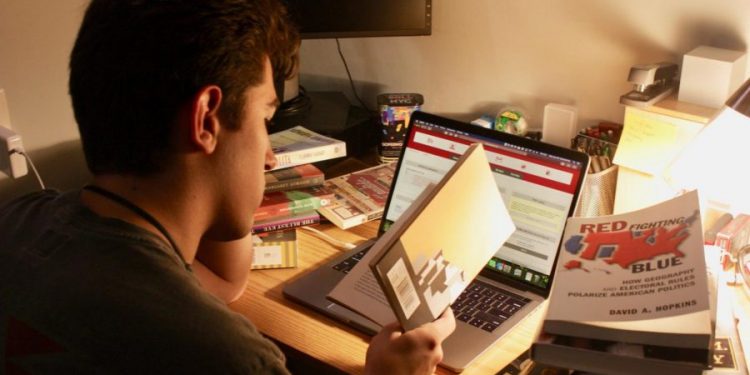A few weeks ago, Buzzfeed News reporter Anne Petersen wrote the article, “How Millennials Became the Burnout Generation.” Yes, the article is as accusatory as its title makes it out to be.
Petersen starts out by giving her take on how “errand paralysis,” a diagnosis she describes as procrastinating the simple tasks of daily life, has taken the millennial generation by storm.
As a self-professed non-slacker, Petersen explains how even she was affected by the “virus,” tending to avoid the more low-priority tasks that accrued over time. She details how this procrastination is a form of burnout, caused because millennials are “…unequipped to deal with the particular ways in which [life] has become hard for us.”
Petersen claims that life requires millennials to “optimize” themselves to be the best workers possible in order to keep up with the current American economy. Not only are most people now expected to have a college degree, they are also expected to handle massive student loans (loans so ridiculous that there are now quiz shows centered around eliminating the winner’s student debt).
Overall, Petersen’s piece on burnout left me feeling exactly that: burnt out. At no point in her argument does Petersen present the reader with any hope of ending this cycle of “errand paralysis.” On the contrary, she states, “The problem with holistic, all-consuming burnout is that there’s no solution to it.” Instead, she resolves to simply live with it, and suggests others do the same.
It’s also worth mentioning how non-intersectional Petersen’s piece is. Her comments on burnout are nearly exclusive to the experience of white, middle class citizens, rather than the average millennial of ambiguous race and class.
Tiana Clark comments on this, explaining that she could not find herself in Petersen’s article, simply because the label of “lazy” has very different consequences for a woman of color than it does a white man.
I take two major issues with Petersen’s perspective: that there is no solution to burnout and that burnout is relegated to millennials for specific reasons.
Both issues are also raised by Slate reporter Shannon Palus in her response article “Burnout Isn’t Just a Millennial Affliction.” Palus counters Petersen’s thoughts on burnout with the concept that burnout can be treated, if not completely remedied, by practicing the simplest kinds of self-care. Any method works, whether it be an involved facial routine, a weekly spin class or rewatching the last season of “Queer Eye.”
I find myself wholeheartedly agreeing with Palus, based on both her arguments and how she presents them. An op-ed, or at least one written correctly, does not exist to solely represent the writer’s opinion on any given issue.
Rather, the piece should convey an issue that the writer has recently noticed, a bit of background and then most importantly some form of a solution. To write an op-ed with no possible fixes is to leave your reader with only a feeling of discontentment, instead of a rallying call to action that opinion pieces should strive to achieve.
Further, I am frankly fed up with this trend of lumping together an entire generation under one label. It seems a tad ridiculous to assume that millennials are the only ones feeling burnout in our incredibly demanding society. Millennials could be experiencing this particular burnout, but so too could any other person in the world, regardless of their age.
It is almost as ridiculous as the notion that generations should be competing to be the “most well adjusted human beings.” Each generation has its own set of unique challenges, usually based on the actions of the previous generations. Members of the “silent generation,” or those age 66 to 83, were part of the nation’s civil rights movement. The baby boomers were preoccupied with the Vietnam War. And the millennials are staring down the barrel of a future without the guarantee of social security.
So, thank you Anne Petersen, but I would take my sophomoric coping mechanisms and optimistic outlook over your bleak perspective and non-advice any day.
By Briana Scalia





